This article comes with a caveat. Many knowledge workers are almost unmanageable, but there is also good news. It is possible to manage the contributions of knowledge workers to achieve a compelling goal.
Some of the greatest feats in human history have come from co-ordinating people’s talents. The key has been to make clear contracts with people about their contributions. They have then used their talents to perform great work.
Today many people are seen as knowledge workers. They earn their living by gathering and using their know-how. Such people use their brains rather than their brawn, their hearts and heads as well as their hands.
Peter Drucker used the term knowledge worker in his 1959 book, Landmarks of Tomorrow. The Drucker Institute website says:
In the late 1950s, Drucker coined the term “knowledge worker,” and he spent the rest of his life examining an age in which an unprecedented number of people use their brains more than their backs.
Many organisations have an ambivalent attitude towards such workers. On the one hand they need their expertise. On the other hand these individuals can be difficult to manage. Let’s explore the characteristics of such people.
Knowledge workers often put a strong emphasis on Individuality, Integrity, Intelligence and Impact. Let’s explore these themes.
Individuality
Knowledge workers have a strong sense of individuality. They often have independent views and enjoy being different. They want to be treated as individuals.
Such people are often inner-directed, which is a term coined by David Riesman in the 1950s. They form their opinions by looking within and clarifying their own values.
This is in contrast to people who are other-directed. Those people rely on outside institutions and authority figures for strong guidance.
Integrity
Knowledge workers have strong values. They believe deeply in the integrity of their art, science, craft or other field.
Frequently this has huge benefits. They stand for maintaining ethical and professional standards. They may also act as whistle-blowers if such standards are compromised.
Sometimes there can be downsides. Knowledge workers can be seen as reactionary and protecting their vested interests.
The phrase doctor knows best, for example, sums-up both sides of the story. Doctors are admired for their expertise and ethics. On the other hand, some may refuse to listen to patients.
Knowledge workers believe in being true to their vocation. They have little time for organisations that pay lip service to these values. They will then speak out to defend their professional integrity.
Intelligence
Knowledge workers often have great intelligence in their own field. They love to learn and stretch themselves. Knowledge is their currency and provides the passport to development.
Such people respect others who have expertise. They may start out by testing newcomers, however, just to check if the new person knows what they are talking about. On the other hand, they can be scathing towards those who are superficial or talk in clichés.
Knowledge workers frequently speak their minds, which can be a blessing or a curse. They bring freshness, but can also be blunt. Managers may sometimes need to manage the interface between certain knowledge workers and other people in the organisation.
Impact
Knowledge workers like to use their expertise and see that is has a positive impact. They are like artists, scientists, inventors, designers and those in the problem solving business. One person said:
“I enjoy developing new ideas, building models and finding solutions that help people.”
Such workers often focus on innovation, implementation and impact. Seeing results is crucial because, as many of them say, they want to make a difference.
Organisations that invite them to contribute suggestions must show how some of these ideas are translated into action. Otherwise knowledge workers may retreat into pursuing their individual agendas.
Great organisations can coordinate the talents of such people to achieve the overall goals. Knowledge workers are often loyal to their vocation, however, rather than to a particular organisation. The key is to find win-win solutions that benefit everybody and produces great work.
Clear Contracting With
Knowledge Workers
Clear contracting is crucial in any professional relationship. This is especially so with knowledge workers. Let’s consider one approach to making this happen.
Good leaders create a positive culture in which motivated people can achieve peak performance. They often start by explaining the big picture of people. Different leaders do this in different ways. Whichever method they use, however, they often explain the following themes.
The What
The specific goal we want to achieve – the picture of success – is:
The Why
The specific benefits – for the organisation, colleagues and customers – of achieving the goals will be:
The How
The key strategies we aim to follow to achieve the goals are:
The Who
The various roles that people will play – including the professional standards they will need to demonstrate – on the road towards achieving the goals are:
The When
The specific things that must be delivered – and by when – on the road towards achieving the goals are:
Good leaders make the professional deal clear. Realistic and honest, they explain to people what they can and cannot expect on the journey.
Such leaders explain the organisation’s role in working to achieve the goals. This includes the support it will give to people. They also explain the employee’s role. This includes the potential pluses and minuses involved.
They then invite people to reflect and decide if they want to help to achieve the goals. If so, they make clear contracts with people about their contributions towards achieving the picture of success.
There are many tools for making this happen. One approach is to invite individuals to do the following exercise. Bearing in mind the organisation’s goals and their own strengths, this invites them to describe and then agree with their manager on the following things.
Specific Goals
The specific goals I aim to deliver and by when are:
Specific Benefits
The specific benefits of achieving the goals – for the various stakeholders – will be:
Specific Support
The specific kinds of support I would like to help me to achieve the goals are:
Specific Updates
The specific things I will do to proactively keep people informed about the progress towards achieving the goals are:
Specific Results
The specific things that will be happening – including the specific things that the various stakeholders will be saying – that will show I have delivered the results will be:
Good leaders make clear contracts with their people. They then manage by outcomes, rather than by tasks. They encourage and enable people to follow the agreed professional standards and deliver the goods.
Here is the exercise you can use to make clear contracts with knowledge workers. They can then make their best contributions towards achieving the picture of success.



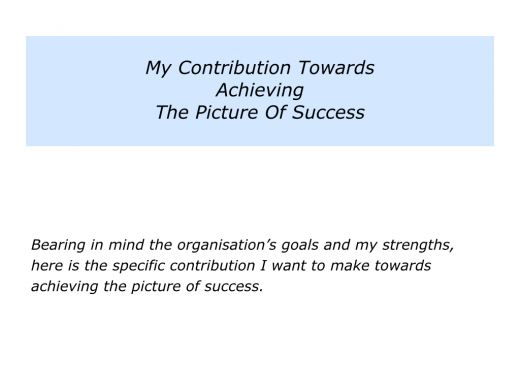
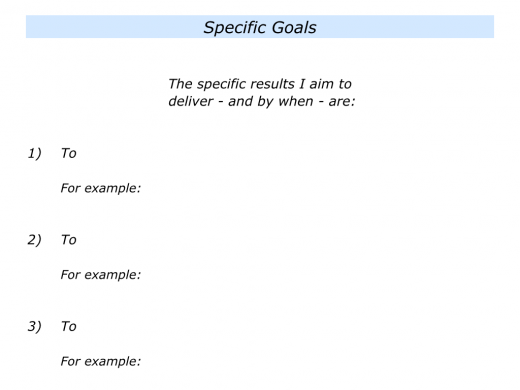
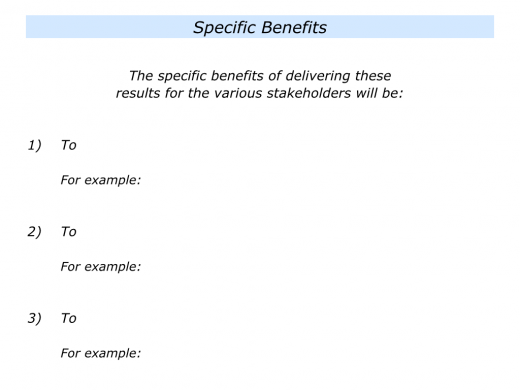
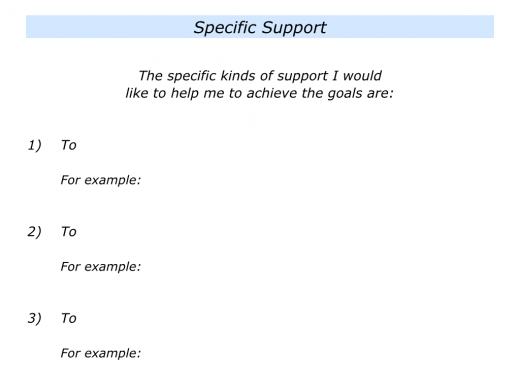
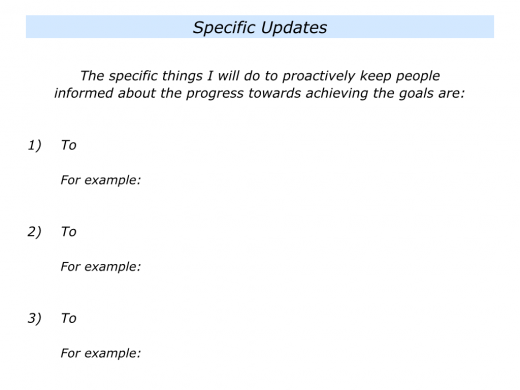
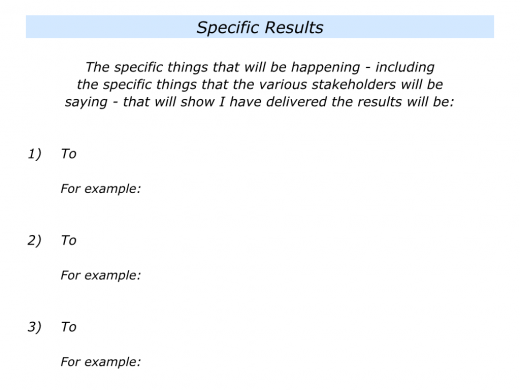




Leave a Reply